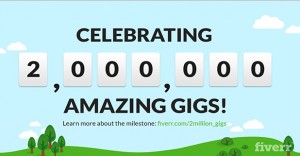The archetypal worker in an advanced economy used to be a man on a production line or a salaryman in a city office — a secure, yet repressed, cog in a machine.
There are still millions of these, including many women, but the new world of work is both more exciting and less secure. There is greater variety, in both pay and conditions. A job is more likely to be part-time, temporary, freelance or self-employed. It may not be a job at all, in the way it used to be defined.
The gig economy is only part of a shift in employment over the past three decades, unleashed by technology and global trade.
Yet this world of insecurity and risk is also one that many people seem to appreciate. More self-employed people in Europe and the US report enjoying their jobs than those who are employed. Many entrepreneurs, even those who run a tiny business that amounts to self-employment, like their freedom and self-reliance and the possibility that they could become wealthy.
The McKinsey Global Institute, the research arm of the management consultancy, estimates that what it calls “online talent platforms”, job sites such as Monster.com and platforms such as Uber, could add 2 per cent to global gross domestic product by 2025, increasing employment by 72m full-time equivalents.
The ideal working life for many millennials is not finding a safe job that will last them a lifetime but creating a technology start-up, a glamorous form of small business that is backed by angel investors. They dream of being Mark Zuckerberg of Facebook or Larry Page and Sergey Brin of Google, not an executive of a professional services firm or public company.
The new world of work must chart a course between the twin dangers of corporate conformism and worker exploitation The dream can be just that; the average income from self-employment fell 22 per cent in the UK between 2009 and 2014, even as self-employment contributed 732,000 of the 1.1m rise in total employment.
The challenge for policymakers is to find a new form of employment contract that suits the changing workforce.
The Labor Commissioner’s Office in California ruled in June that Uber drivers were in effect employees, not independent contractors, as the company sees them. The UK government is raising the adult minimum wage and the New York Wage Board has recommended phasing in a $15 minimum wage for the state’s fast-food workers.
The task is to limit the downside of the new economy without curtailing job growth or preventing people from working in they way they prefer.
Few want to be a cog in a machine, even if they are given the chance. The new world of work must chart a course between the twin dangers of corporate conformism and worker exploitation.

